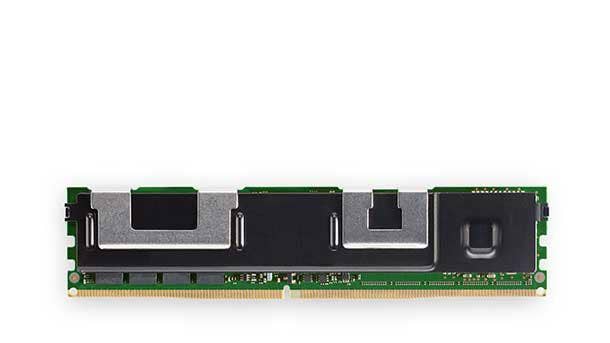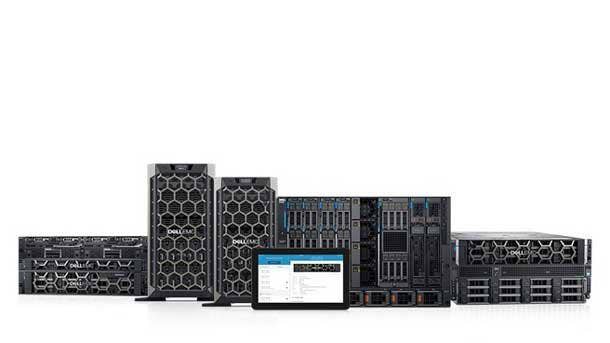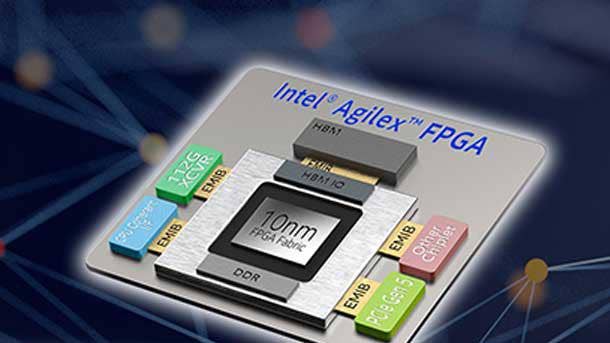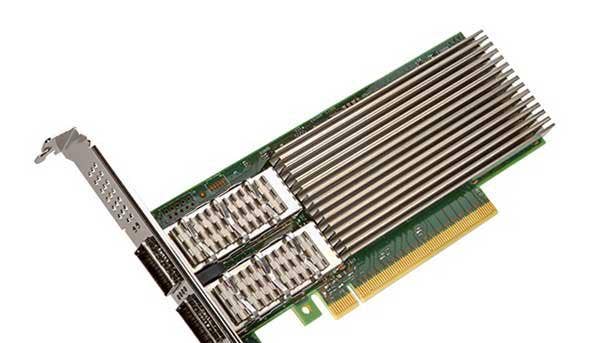Xeon Scalable, Optane Lead Intel's Big Data Center Rollout

No Longer Just A CPU Company
Intel made its strongest case yet on Tuesday that the chipmaker isn't a one-trick pony in the data center market by showcasing a massive and sprawling portfolio of products for compute, network and storage.
With AMD trying to chip away at Intel's dominant server market share for general-purpose processors, Intel is not resting on its laurels. The Santa Clara, Calif.-based company is betting on a wider range of offerings that interact with each other and target specific workloads. These products range from the new second-generation Intel Xeon Scalable processors to Intel Optane DC persistent memory.
[Related: Intel Rebrands Partner Program, Adds New Training, Collaboration Tools]
"Today’s announcements reflect Intel’s new data-centric strategy,” Navin Shenoy (pictured), Intel's top Data Center Group executive, said in a statement. “The portfolio of products announced today underscores our unmatched ability to move, store, and process data across the most demanding workloads from the data center to the edge."
What follows are the five biggest announcements the company made at its Intel Data-Centric Innovation Day event in San Francisco, which includes processors with new artificial intelligence capabilities, new memory technology and OEMs offering their support.

Intel Launches Xeon Cascade Lake With Optane Support
Intel announced that its long-awaited, second-generation Xeon Scalable processors are now available. The processor family, which was previously known under the code name Cascade Lake, is the first Xeon group to support the new Intel Optane DC persistent memory, which provides up to 36 terabytes of system-level memory in combination with traditional DRAM.
The flagship product of the new processor line is the Xeon Scalable Platinum 9200, which features up to 56 cores and 12 memory channels for workloads in high-performance, computing, advanced analytics, artificial intelligence and high-density infrastructures. Other processors in the family include the Xeon Platinum 8200 (28 cores), Xeon Gold 6200 (24 cores), Xeon Gold 5200 (18 cores), Xeon Silver 4200 (12 cores) and Xeon Bronze 3200 (8 cores).
All the new Xeon Scalable processors, which are based on an improved 14-nanometer manufacturing process, feature Intel's new Deep Learning Boost technology, which can improve throughput for artificial intelligence inference workloads by up to 14 times. They also use Intel Turbo Boost Technology 2.0 for boosting the clock frequency to as much as 4.4 GHz and Intel Speed Select Technology for greater flexibility and responsiveness in handling workloads. Finally, the processors come with greater hardware-level mitigations for the Spectre and Meltdown vulnerabilities.

Intel's Optane DC Persistent Memory Comes With 36TB Capacity
After revealing Intel Optane DC persistent memory last year, the company announced that the product is finally available for servers running on Intel's new second-generation Xeon Scalable processors. Intel has previously promised it would enable new workloads and solve "bottlenecks in the DRAM tier."
With memory capacity of up to 36 terabytes, Optane DC persistent memory brings more data into memory, which remains on the system throughout power cycles thanks to the persistent nature of Optane's 3D NAND memory technology. This can reduce system restarts from minutes to seconds, according to Intel, while enabling up to 36 percent more virtual machines.
Intel also announced the dual-port Intel Optane DC SSD D4800X, a new storage product that provides high availability and fast speeds for overcoming data bottlenecks in mission-critical environments. The company will announce the product's availability at a later date.

Dell EMC, Lenovo, Supermicro Support New Xeon, Optane DC Products
Along with Intel's new product announcements came new systems from Dell EMC, Lenovo and Supermicro that support second-generation Xeon Scalable and Optane DC persistent memory. NetApp also announced that it would support Optane DC with its MAX Data solution.
Dell EMC refreshed its line of PowerEdge Servers that run on Intel's new Xeon and Optane products. The company said Intel's second-generation Xeon Scalable processors can increase performance for core business applications by up to 40 percent. Optane DC persistent memory, in the meantime, can provide increase memory capacity by up to 2.5 times for certain workloads, including virtualization and analytics.
Lenovo, meanwhile, announced a new line of ThingSystem and ThinkAgile servers and appliances running on Intel's new Xeon and Optane products. Among its new data center offerings is the Lenovo ThinkSystem SR950, which Lenovo said is the world's first eight socket server with Optane DC persistent memory. The company said Optane DC can accelerate recoveries from outages by 12.5 times, reducing recovery time from 50 minutes to four minutes.
Supermicro updated its X11 portfolio of servers to run on Intel's new Xeon and Optane products, saying it now has more than 100 workload-optimized systems that support the new components. With second-generation Xeon Scalable and Optane DC combined, the company said customers can expect 35 percent faster data center performance and a 50 percent reduction in total cost of ownership.

Intel's 10nm Agilex FPGAs Accelerate Data Center Workloads
Intel showed off a new family of field-programmable gate arrays, the company's reprogrammable chips that act as accelerators of data center workloads, from the edge to the cloud. The new family is called the Intel Agilex FPGA, and it's meant to provide customized solutions for applications ranging from edge analytics for low-latency processing to data center acceleration for improved efficiency.
some FPGAs to structured ASICs
The Agilex accelerators can provide up to a 40 percent increase in performance or up to a 40 percent decrease in total power consumption compared to Intel's Stratix 10 FPGAs. They are the first FPGAS to support Compute Express Link, Intel's new cache and memory coherent interconnect that is supported in upcoming Xeon Scalable CPUs. They are also compatible with Intel Optane DC persistent memory.

More Product Reveals: Xeon For Edge, Intel QLC SSD, Ethernet 800 Series
Intel also revealed new products for networking, warm storage edge computing.
Outside of second-generation Xeon Scalable, the company unveiled its new family of Xeon D-1600 CPUs, which are highly integrated system-on-chip modules provide optimized per-fore performance in compact environments that require low-power envelopes. The processors pack up to 8 cores and are designed for virtualized work functions, as well as control plane and mid-range storage solutions.
Intel showcased its new QLC 3D NAND SSD D5-P426, a solid-state drive that comes in a ruler form factor and provides large, cost-effective storage capacity. The company said the new product, which it considered the "industry's first EDSFF compliant drive," can drive storage consolidation and cost savings for content-delivery networks, data lakes, scale-out storage and large media stores.
Lastly, the company showed off its new Intel Ethernet 800 Series of controllers and adapters, which can support speeds of up to 100 Gbps — four to 10 times higher bandwidth capacity compared to what most companies have today, according to Intel. The new controllers and adapters feature the new Application Device Queues capability for improving application performance and consistent.